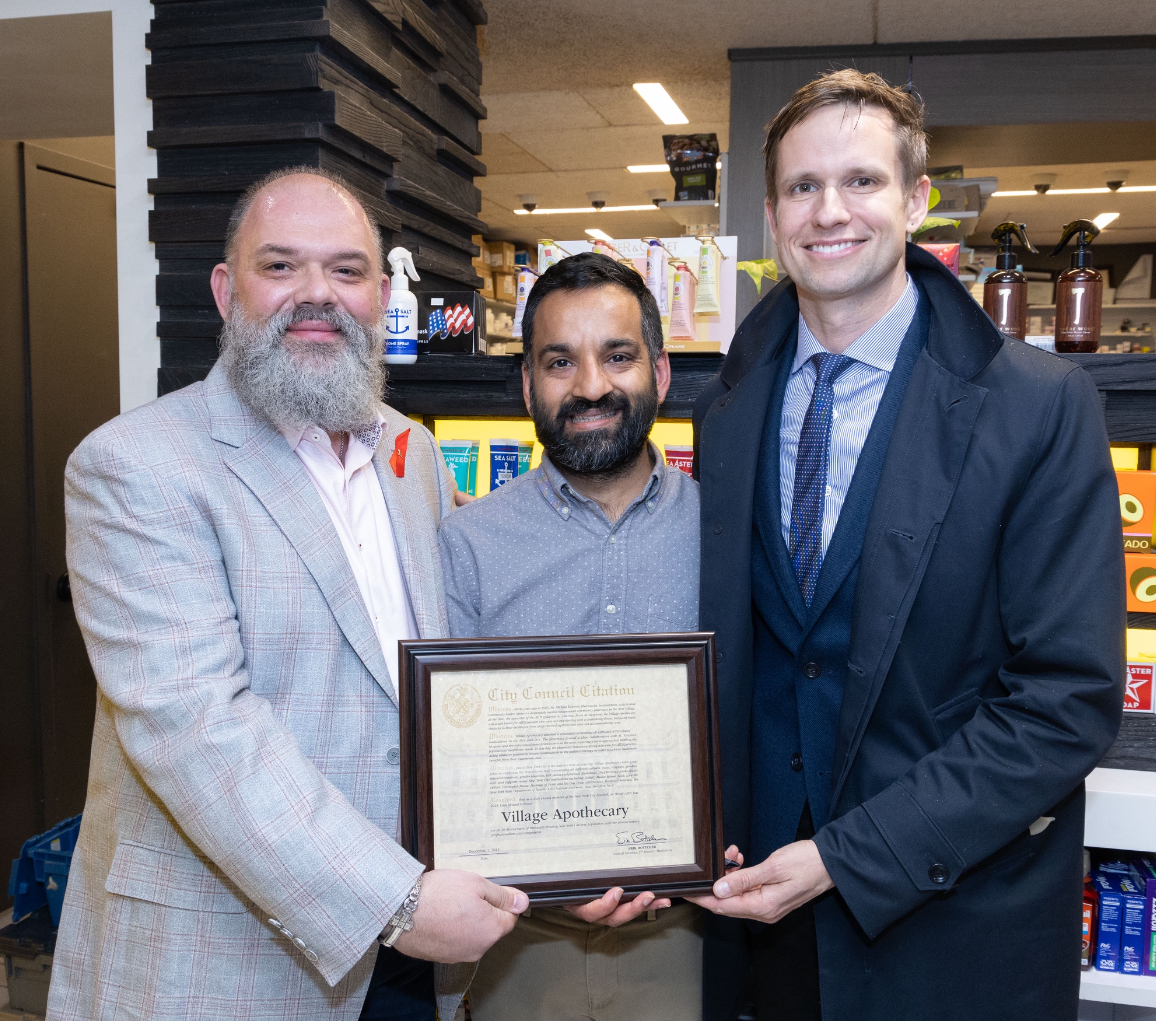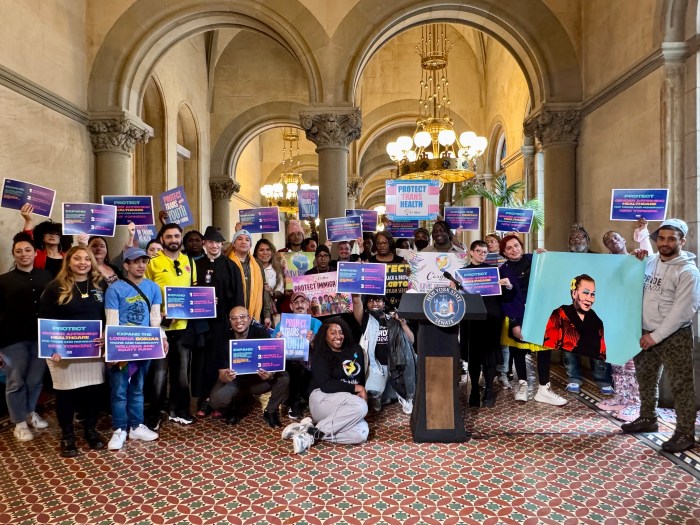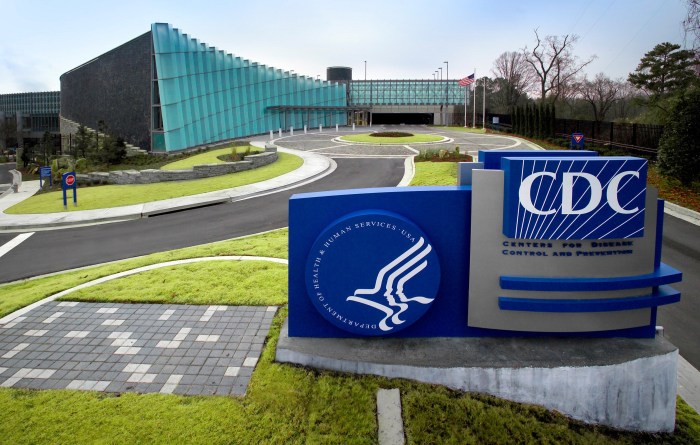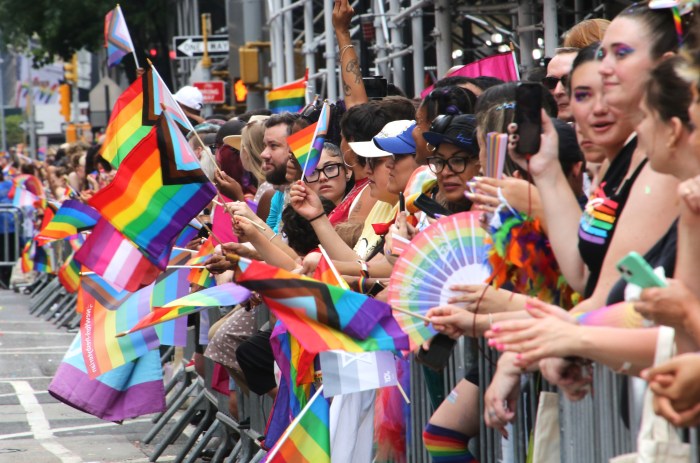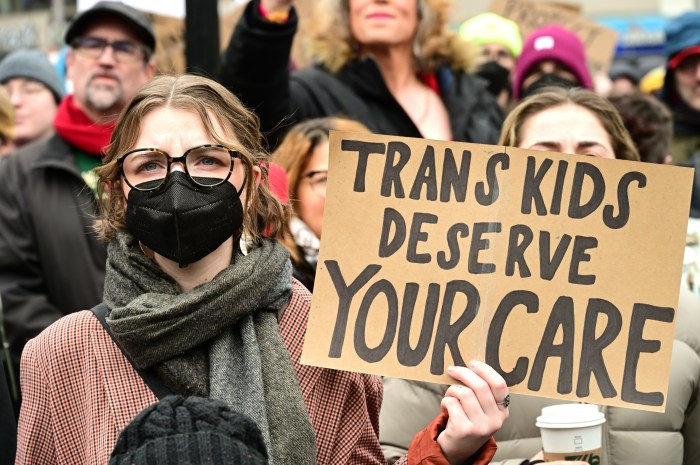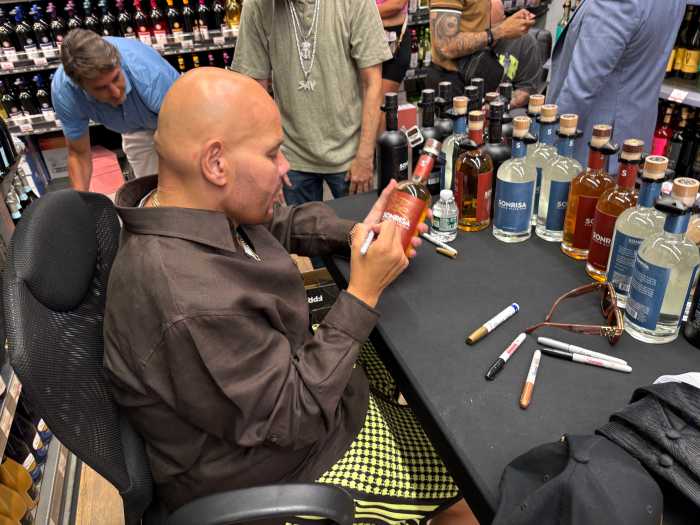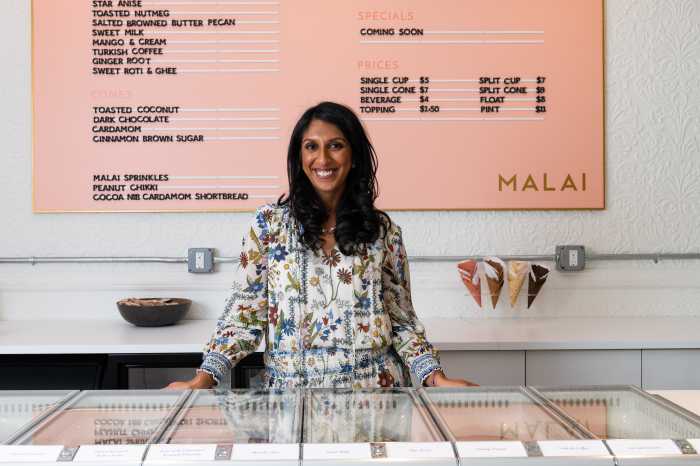A historic independent pharmacy, Village Apothecary, continues to fight for its customers 40 years after it first opened its doors at the eruption of the HIV/AIDS epidemic in Greenwich Village.
The award-winning pharmacy on the corner of Bleecker and West 10th Streets in the heart of New York’s historic gayborhood has truly been a good neighbor since its founding in 1983 by the late Micheal Konnon, an out gay Greek American pharmacist.
Greenwich Village was the site of the Stonewall Riots, a six-night queer uprising against New York City police in 1969 that launched the modern-day LGBTQ movement and Pride celebrations.
“Our founder was an activist and Stonewall veteran, and was involved in the community from early on,” said the pharmacy’s director of pharmacy services, John Kaliabakos,
“[Konnon] saw that the neighborhood needed a smaller, community-based pharmacy to serve the neighborhood,” he continued. “He decided to open a pharmacy to cater to his friends that he knew in the neighborhood and other people in the Greenwich Village area.”
From day one, the New York native’s goal was to serve his community in Manhattan’s West Village, where he called home since graduating from Fordham University College of Pharmacy. He accomplished that by specializing in HIV care, working with nearby St. Vincent’s Hospital and other HIV/AIDS experts to get experimental and the latest drugs and treatments stocked on his shelves at an affordable price. At the peak of the HIV/AIDS crisis, Konnon worked with federal and state programs. He worked closely with the New York State Department of Health’s AIDS Institute and the Ryan White HIV/AIDS Program. The Village Apothecary was one of the first pharmacies to get patients signed up with the New York State AIDS Drug Assistance Program.
Konnon also worked closely with community-based organizations such as the Gay Men’s Health Clinic, God’s Love We Deliver, People With AIDS Coalition, Bailey-Holt House AIDS Housing, the Entertainment Community Fund (formerly the Actors Fund of America), Heritage of Pride, the AIDS Medical Foundation, and many other organizations. Konnon set up flexible payment plans at the pharmacy and even paid for medications for customers out of his own pocket, according to West Village News.
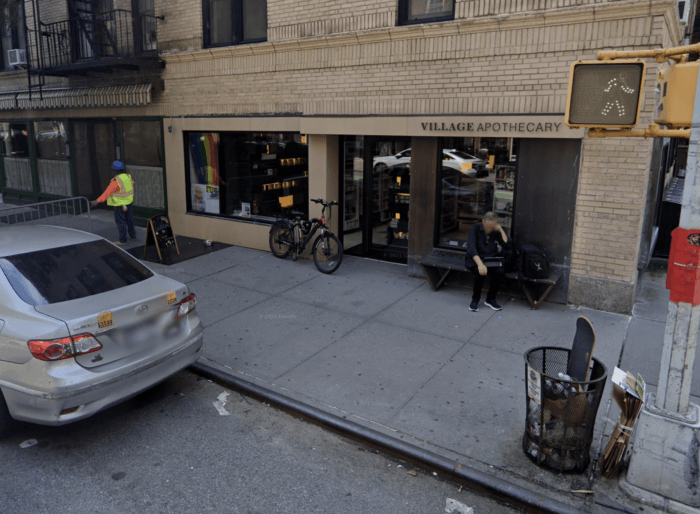
He also hired gay men from the neighborhood to provide a supportive and welcoming environment in an era where gay men faced high levels of discrimination and stigmatization. At the same time, he fought for government action on and funding for HIV/AIDS until he retired in 1995. Konnon died of natural causes at his home at the age of 81 in 2018.
His legacy is now carried on by pharmacy owners Vijay and Mital Desai, as well as Kaliabakos. The Desai’s bought the pharmacy in 2012 with the intention of maintaining its history and values, according to Village Preservation. The pharmacy received a makeover in 2018.
Konnon hired Kaliabakos, 51, a fellow Greek New Yorker, right out of the city’s St. John’s University’s College of Pharmacy and Health Sciences in 1994. It was a year before the first HIV drug cocktail, a combination of HIV drugs, was approved by the FDA in 1995 and four years after the United States government launched the Ryan White HIV/AIDS Program. The federal program was set up to combat the crisis that killed 100,777 people — mostly gay men — between 1981 to 1990 by providing funding for care and treatment and prevention through community organizations. The program and cocktails were a game-changer for people living with HIV, bringing many on the brink of death back to life at the time.
“We were kind of in the bullseye of what was going on,” Kaliabakos said. “We were dealing with all the new and exciting stuff that was going on at the time — approved and unapproved stuff.”
Today, Kaliabakos, an ally, is still fighting for the pharmacy’s more than 500 HIV-positive patients, overseeing their prescription profiles and consulting with HIV specialists in New York City, according to St. John’s University.
The battle hasn’t ended; it has only shifted during the more than four decades since HIV/AIDS crisis began and the pharmacy opened. Today, Kaliabakos said it is fighting the insurance companies, drug companies, and big box pharmacies.
“It’s been a constant battle and these kinds of battles are still going on these days as well,” he said, pointing to insurance companies trying to push patients into mail-order prescriptions. Yet, the pharmacy is still open, despite other independent pharmacies closing, helping its patients navigate the mountain of paperwork and all the complicated pieces of their health care.
People who “only go to the pharmacy for an antibiotic once a year, they can’t really understand why it’s so important to have a pharmacy in your corner,” Kaliabakos said. But, he continued, “for patients that are on these medications that are keeping them alive,” there are many complications, details, and specialists involved, especially for those who are aging with HIV, which equals “complicated regimens sometimes.”
It all boils down to communication, said Kaliabakos, who said the pharmacy and his team of 10 employees “monitor every HIV patient’s drug regimen” everything from timely drug refills to mixing medications to having all the medications they need.
“There’s a lot of things that can happen and a lot of things can go wrong,” he continued. “Unfortunately, the way that the system is right now a lot of people fall through the cracks.”
“Sometimes we just need to talk through the red tape and the complications to make it happen,” he added.
Craig Sherman, 71, an HIV-positive gay man who has been going to the pharmacy for about 40 years, said between his doctor, Dr. Ricky Hsu, and Kaliabakos, “I feel like I’m in good hands.”
Hsu is a gay man who is an HIV specialist and the medical director at the AIDS Healthcare Foundation’s Healthcare Center.
Most recently Kaliabakos advocated for the regulation and licensing of pharmacy benefit managers. Former Governor Andrew Cuomo vetoed a bill for regulation and licensing of pharmacy benefit managers in 2020. Last month, the Empire State’s Department of Financial Services finalized licensure rules for pharmacy benefit managers and withdrew its proposed market conduct rules, which would have significantly increased the state’s oversight of pharmacy benefit managers, it announced in August, reported JDSupra. In 2018, the pharmacy was one of the first to register for a pilot program, PEP 4 HIV Prevention, to get pre-exposure prophylaxis, or PrEP, to people exposed to potential HIV infection, reported Gay City News. PrEP blocks HIV if taken within 72 hours for seven days.
The pharmacy has carried that same advocacy for HIV-positive customers to patients with other life-threatening diseases, such as cancer, and viruses, such as COVID-19 and Mpox, noted Kaliabakos.
When Russia invaded Ukraine, the pharmacy donated medications and supplies to Clinique YFT after Dr. Yelena Yeretsky, founder and medical director of the West Village organization, approached them to help Ukrainian hospitals.
“[Kaliabakos] has done a tremendous amount of work,” Sherman said. “I still have a small, independent pharmacy that is so familiar with my medical needs and my medications, as opposed to going into a big box store and seeing whichever pharmacist is behind the counter. It’s just a really nice little neighborhood pharmacy.”
Longtime gay activist Gene Fedorko (a 2023 Gay City News Impact Award recipient) — who originally worked for HIV specialist Dr. Paul Bellman until he retired and now works for Dr. Jose Lares-Guia in New York City — called Kaliabakos and his staff “very adept and smart.”
“They did a lot of things for patients that other pharmacies would not do,” he said, adding that “there’s a big difference” between the personalization of Village Apothecary and the impersonal service provided by big box chain pharmacies like Duane Reade.
Village Apothecary has been recognized for its work by New York’s Mayor’s Office, the New York State Assembly, and others. This year, Schneps Media, the parent company of Gay City News, recognized the pharmacy with the Healthcare Heroes Award. Last year, Gay City News honored Kaliabakos with an Impact Award.
Additionally, the pharmacy supports locally owned businesses carrying high-end skincare and other personal care products at its store.
“We’re gonna continue doing what we’re doing, fighting the good fight, and making it happen for as long as we can and as long as everybody trusts us with their pharmacy care,” Kaliabakos said.
He added: “We’re fortunate that we do what we do. We have a client base and a community that’s very loyal to us and we are to them. It ends up working out well.”

